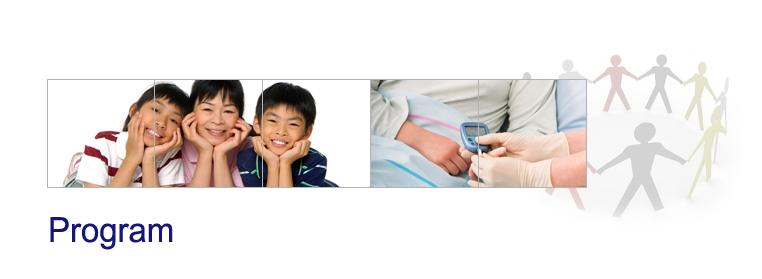|
|
PLATINUM - Study Design Peer leaders are people with diabetes who volunteer to undertake an extensive program of training on diabetes management. The overarching goal of the training is to foster effective peer leaders who are able to deliver support and advice to their peers on a one-to-one basis, in person and via telecommunication, as well as facilitating group meetings and activities. Since the peer leaders will help patients develop strategies to incorporate complex treatment regimens into their everyday routines, the curriculum and format of sessions will be based on behavioral approaches and will take the form of lectures, tutorials, role plays and group sharing. To become a ‘peer leader’ the volunteer diabetes patients will undergo a 32-hour 'train the trainer' interactive program, held over 6 weeks (4 workshops, 8-hours each), and led by health care experts in nutrition, physical activity, psychology and neuro-linguistics. The employment of a multi-disciplinary team to deliver the required training ensures the peer leaders receive adequate knowledge and skills from healthcare specialists. In addition to factual knowledge on diabetes as a disease, the program content also includes information on communication and empowerment skills, as well as basic knowledge on psychology, stress management, social support, empowerment, and healthy lifestyle, including diet and physical activity. Workshop 1: Effective Communication (Run by NLP Trainer)
Peer leaders need to understand the essence of having non-judgemental, empathetic and encouraging interaction, generally no attempt to convince or persuade the patient, or to provide advice. Instead, reflective listening and positive affirmations are used to help patients to identify their own health goals and the discrepancies in their behaviour that influence achieving these goals.
Workshop 2 : Food & Nutrition (Run by nutritionist)
Workshop 3 : Physical Activity (Run by physical trainer)
Workshop 4: Psychology (Run by psychologist)
|








